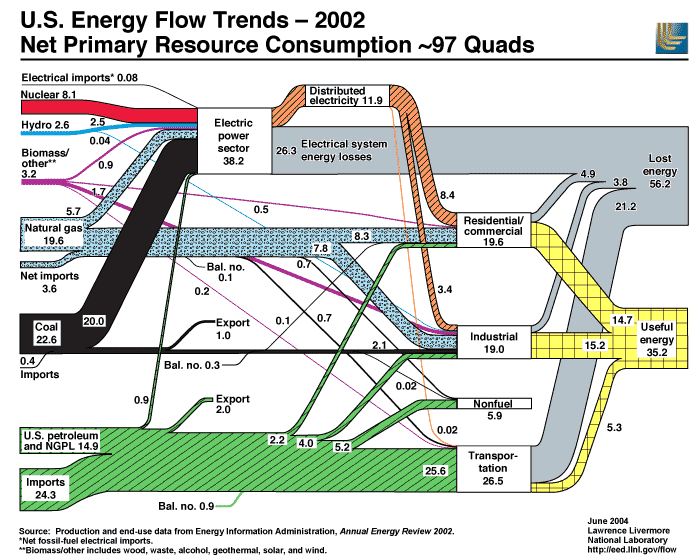Joel N. Weber II
Engineer
Obama has promised to get the US to be independent of mid-east oil by some date.
While on some level I think that's a great idea, I'm also not really convinced it's doable.
This article claims ``And Obama is wrong when he implies that America imports most of its oil from the Mideast. Most of it comes from Canada and Mexico.''
(Did Obama actually imply that? The small snippet of his speach that WBZ decided to replay when I was briefly paying attention to the radio didn't clearly imply that to me.)
But then I'm looking at the June 2008 data in this US Department of Energy page. They list both crude oil and petroleum data. It looks like it's saying that 3.6 million barrels of petroleum per day came from Canada plus Mexico, and 2.4 million barrels per day from Saudi Arabia plus Iraq plus Kuwait. About 3.0 million barrels of crude oil per day came from Canada plus Mexico; 2.4 million from Saudi Arabia plus Iraq plus Kuwait. The total crude oil imports from all countries were about 10.0 million barrels per day, so Saudi Arabia plus Iraq plus Kuwait make up about 24% of crude oil imports; I don't think I see a total petroleum import number on that page.
One thing that isn't clear to me is what the difference between crude oil and petroleum really is. Is it just a matter of whether some steps of the refining process happen in the US or in the other country?
Is it realistic to think that this country is actually going to eliminate 24% (or whatever exactly the number is) of fuel consumption by automobiles and airplanes? Even if we do, will we selectively buy more expensive oil from non- middle-east countries? Or is it realistic to think that the Canadians and Mexicans are going to start selling us more oil cheaply because Obama is going to ask them nicely, and otherwise it never would have occured to them that there are lots of US dollars they could be hoarding if only they would figure out how to produce more oil cheaply?
While on some level I think that's a great idea, I'm also not really convinced it's doable.
This article claims ``And Obama is wrong when he implies that America imports most of its oil from the Mideast. Most of it comes from Canada and Mexico.''
(Did Obama actually imply that? The small snippet of his speach that WBZ decided to replay when I was briefly paying attention to the radio didn't clearly imply that to me.)
But then I'm looking at the June 2008 data in this US Department of Energy page. They list both crude oil and petroleum data. It looks like it's saying that 3.6 million barrels of petroleum per day came from Canada plus Mexico, and 2.4 million barrels per day from Saudi Arabia plus Iraq plus Kuwait. About 3.0 million barrels of crude oil per day came from Canada plus Mexico; 2.4 million from Saudi Arabia plus Iraq plus Kuwait. The total crude oil imports from all countries were about 10.0 million barrels per day, so Saudi Arabia plus Iraq plus Kuwait make up about 24% of crude oil imports; I don't think I see a total petroleum import number on that page.
One thing that isn't clear to me is what the difference between crude oil and petroleum really is. Is it just a matter of whether some steps of the refining process happen in the US or in the other country?
Is it realistic to think that this country is actually going to eliminate 24% (or whatever exactly the number is) of fuel consumption by automobiles and airplanes? Even if we do, will we selectively buy more expensive oil from non- middle-east countries? Or is it realistic to think that the Canadians and Mexicans are going to start selling us more oil cheaply because Obama is going to ask them nicely, and otherwise it never would have occured to them that there are lots of US dollars they could be hoarding if only they would figure out how to produce more oil cheaply?
Last edited by a moderator:




